A webinar was held on 09 February, 2021 on “Russia-Pakistan Relations” under the auspices of the Karachi Council on Foreign Relations (KCFR), chaired by Ikram Sehgal, Chairman KCFR and moderated by Ambassador Mustafa Kamal Kazi, Senior Vice Chairman KCFR. His Excellency Danila Ganich, Ambassador of Russian Federation to Pakistan was the Plenary Speaker.
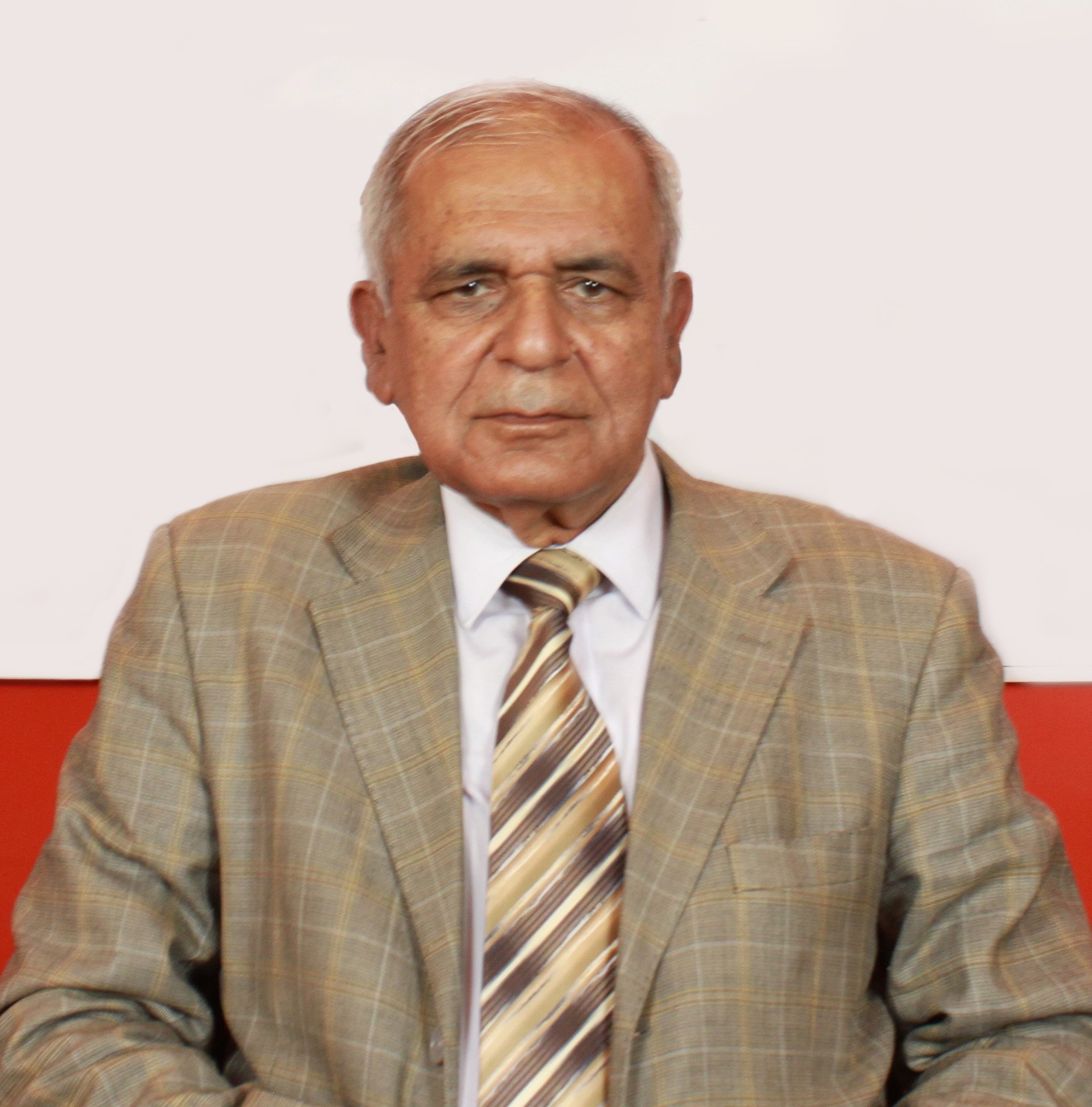
Secretary General/CEO KCFR
Cdr (R) Sadeed A Malik: Secretary General/CEP KCFR started proceedings with a brief introduction of KCFR: Thank you sir. A very warm welcome, Your Excellency. I would very briefly like to tell you what Karachi Council on Foreign Relations is. About 18 years back, it was formed by our founding Chairman Chief Justice of Pakistan Retired. Mr. Saeed-uz-Zaman Siddiqui. After that we had former Chief of Naval Staff and Ambassador Admiral Shahid Kareemullah as Chairman. Then we had a Federal Minister, Lt. Gen. Moeen Haider, and then Ambassador Shahid Ameen. We have had retired Ambassadors, Generals, Air Marshals as part of our team, and captains of businesses and industries. We deliberate, hold conferences, and in the recent past we have held seminars with the President of Pakistan, the Foreign Minister and some think tanks from America. We have signed MoUs with a Russian institution. Unfortunately, their head is on leave, which is why he is not here today with us.
Without any further ado, today’s moderator will be Ambassador Mustafa Kamal Kazi who was Pakistan’s Ambassador in the Russian Federation for four years, apart from being an Ambassador in number of other countries. It was during his time when first time, Pakistan’s Prime Minister visited Russia, and it was also during his time that Duma’s chairman visited Pakistan. Ambassador Mustafa Kamal Kazi, may I request you to start the webinar?
Ambassador Mustafa Kamal Kazi: Thank you very much Commodore Sadeed. Your Excellency Ambassador Danila Ganich, it gives me immense pleasure to welcome you and to thank you on behalf of the Karachi Council on Foreign Relations for joining us on this seminar on Russia-Pakistan relations. We keenly look forward to your views on their progress and prospects for future.
It adds to our delight to have you with us on the eve of the Russian Diplomats Day tomorrow, a day which both the government and the people of Russia celebrate each year to pay tribute to their diplomats for their patriotism and service to the nation throughout the history. Please accept our felicitations.
H.E. Danila Ganich: Thank you, sir.
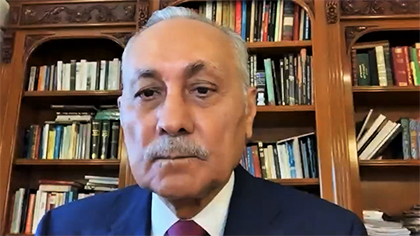
Senior Vice Chairman KCFR
Ambassador Mustafa Kamal Kazi: I’ve had the privilege and honor of serving as Ambassador of Pakistan to your great country from 2005 to 2008. Therefore, from my personal experience, I have lots of admiration for the brilliance of Russian diplomacy and diplomats. Thanks to their professional acumen, my task as ambassador to bring our two countries closer became much smoother. I received both access and understanding for which I continue to remain grateful. I have very pleasant memories and I look back with immense satisfaction and would be sharing some experiences and developments to highlight mutual desire and determination of our two countries to strengthen bilateral cooperation. But before I do that, I would like to point out some global and regional transformations which facilitate closer Russia-Pakistan cooperation, not only in the interest of our two countries, but also for greater good of South, Central and West Asia.
The world now lives in a new reality with rising China, assertive Russia, lasting shifts in global economy and technology, the world has moved towards transformed geopolitical landscape and much-needed multipolar order. USA and Europe pioneered globalization and free trade but they now seem to be turning towards protectionism in varying degrees. Though, if viewed dispassionately the real culprit particularly in the US is huge income and wealth gaps. This is where they need to pay attention. Multilateralism, and not unilateralism is the best means of finding solutions for the world’s increasingly complex problems. The issues of rising and declining powers should not necessarily become a zero-sum, but will the Biden administration make confrontation with Russia and China a core pillar of Washington’s foreign policy? We do not know for sure, but we hope not.
China’s Belt and Road Project seeks to promote inter and intra-regional connectivity through industrial, economic and infrastructure development. This trillion-dollar initiative is unique and the largest ever investment endeavor in human history. It is a new global growth engine and will bring Asia, Europe and Africa closer together. Strangely and unwisely, India and the USA are the only two countries in the world which oppose it, even though India is a member of SCO and BRI will transform the SCO region.
Let me now highlight some positive developments and forward movements in the bilateral relations between our two countries during my assignment in Russia. The visit of Prime Minister Fradkov to Pakistan in April,2007 was a visit of historical significance. It was not only the first Prime Ministerial visit from Russia but the first after Prime Minister Alexei Kosygin’s visit to Pakistan in 1969, 50 years back. Till today it remains the only visit of that level from Russia. In July 2005, both countries adjusted their positions so that Russia got Observer status in OIC with Pakistan’s support and Pakistan was admitted as an observer in the Shanghai Cooperation Organization, SCO. This paved way for Pakistan’s becoming full member of SCO later in 2017. Prime Minister Shaukat Aziz visited Moscow in September 2005. President Putin and our president held several bilateral meetings on the sidelines of the SCO and UN meetings. Foreign Minister Sergey Lavrov visited Islamabad in 2006, which took place after a gap of about 10 years. The practice was established for regular exchange of visits at the highest level by military and intelligence officials from 2005 onwards.
Besides, both sides agreed on exchange of training facilities in each other’s military institutions.
Mr. Alexei Miller, CEO of Gazprom, visited Pakistan in 2005 with proposals for Iran-Pakistan Gas Pipeline and other projects in the energy sector. Defying immense third-party pressure, Russia approved re-export to Pakistan of RD-93 engines for JF-17 fighter aircraft manufactured in Pakistan. This was a bold and groundbreaking Russian gesture towards Pakistan. These are just a few highlights, and when I completed my assignment in Moscow, I had no doubt in my mind that Russia-Pakistan relations entered a new era and that they would only move forward and grow stronger to stand on their own footing independent of third-party intrusions, as was the case in the past.
SCO is the best platform for regional cooperation and integration. It represents 40% of the world’s population and 20% of GDP. China, its founding member has emerged as an infrastructure building superpower. Linkages between CPEC and other BRI streams, as well as previously existing rail and road infrastructure in Central Asia, Caucuses and West Asia all offer tremendous promise for Russia-Pakistan trade and economic relationship. I’m confident that Russia-Pakistan relationship is bound to become a new paradigm that will boost regional cooperation, progress, prosperity and more importantly, stability in the region.
SCO must focus on economic and infrastructural linkages and strive towards achieving strategic autonomy to safeguard emerging economies within the organization from negative political impulses of external-regional rivalries. In this regard, watchful eye will have to be kept on India’s conduct in the SCO because it rejects BRI and is widely engaged in military alliances against China, the sponsor and financier of BRI.
With an area of more than 17 million kilometers and several time zones, one needs many lifetimes to travel around Russia, to admire so many breathtaking sights and beauty of its cities, but I travelled as much as I could including to Siberia. Thanks to the excellent education, average Russians are very knowledgeable and curious to know more. They are very familiar with Pakistan and despite a difficult past have friendly feelings for Pakistan. To accelerate our bilateral cooperation, we in Pakistan need to pay special attention to adding economic substance to relations with Russia. Bilateral trade has crawled to $800 million now from $500 million in 2007 when I was there. This can easily jump to billions of dollars through improved rail and road links with Iran and other countries in the region. To boost economic cooperation we also need to streamline our decision-making processes and look into why there has been no progress or little progress on the projects related to construction of pipelines, steel mill revamp, energy and other sectors. With this background, my impressions and suggestions, I request your Excellency Ambassador Danila Ganich to take the floor. The floor is yours, Ambassador.
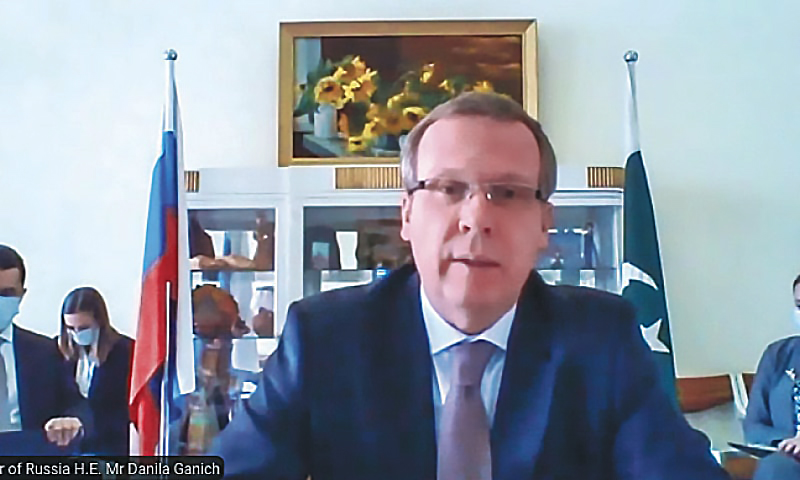
Ambassador of Russian Federation to Pakistan
H.E. Ambassador Danila Ganich: Thank you very much Ambassador. I think that there are lots of professionals here at the webinar, so I’m not going to lecture them. I will give a brief outline of what I think. I think that the prospects of our bilateral relations are bright, and my confidence is based on the fact that there is a consensus developed in both countries in favor of the partnership.
We have common basic interests. These are stability, both global and regional. We have a common interest in a stable Afghanistan. We have a common interest in prevention of outside interference in our domestic affairs. So we have got some commonality of interests and this explains why I am confident that our relationship will further grow. As for the economic ties, I agree that the potential is not used to the fullest extent but my belief is that the developments are taking place as they should, so we cannot artificially accelerate the speed of our economic cooperation. Basically, what we have mentioned here today, the Karachi Steel Mill, some infrastructural projects, they need a re-evaluation, basically, since the Pakistan government does not know itself what it is going to do with the Pakistan Steel Mill. It’s just a black hole. It’s a plant of the former Soviet Union’s times with billions of debts. As for Iran, we should be honest with ourselves. No major company is going to interact with Iran over some infrastructural projects because of the threat of the American sanctions. Europe which promised to defend cooperation with Iran is just conveniently silent, and I’m sure that they will keep silent unless they are given a go ahead from Washington. So my point is that we have a mutually advantageous relationship and this will definitely strengthen in the years to come, but it’ll take some time. As for an area of cooperation, I would say that the most promising area is Afghanistan because we both need stability and peace in our neighboring Afghanistan. So this is some of my views. As for multilateralism, this is another basic commonality. We also think that multilateralism is the best answer. Unfortunately Washington doesn’t believe in that, and I’m sure that the Biden Administration will confront Russia and it will continue, basically, to act in the spirit of the doctrine of the early 1990s. So basically they will try to keep their status of a superpower. This is what we should expect. Then there is another thing, they underestimate Russia. Who is Russia in their view? This, I quote from the recently declassified doctrine of the past Trump Administration. There was a doctrine for the Indo-Pacific region as they call it and Russia was mentioned there as a marginal player. So they don’t consider Russia as a major player at all. Then we have this Congress where there are young people, they don’t know Russia at all, and they are very aggressive and hostile.
So, basically as for the Russian-Pakistani relations, I’m optimistic because we have commonality of basic interests. And as for the international arena and the international developments, I’m pessimistic. I think what we are going to is a global confrontation. So with this, I would like to end my remarks and I’m awaiting some questions if any.
Ambassador Mustafa Kamal Kazi: Thank you very much Excellency. Let us move on to the Question & Answer session. Do we have questions now from our audience?
Question: Would Russia be as much interested to use the sea communication through Gwadar as was intended earlier and how much interest would they have in the CPEC as it’s not only for China to use Gwadar or the ports in Pakistan, but it was meant for all the countries north of Pakistan. How much the Russian Federation would be interested to use this facility?
H.E. Ambassador Danila Ganich:We are developing our final position so our position is taking shape. But what I do know is that if, or rather when this project is successfully complete indeed, there will be a great number of opportunities to somehow use this facility. So I would say that we are monitoring and I think that we should take a look at it as soon as it’s complete.
Ambassador Mustafa Kamal Kazi:Can you add another question please?
Question: To carry out closer relations between our two countries, what are some firm grounds that should be shown for the public to go ahead, and in this connection some infrastructures, which Pakistan is ever open to, from investment outside. How much investment is expected from Russia into Pakistan?
H.E. Ambassador Danila Ganich: Excellency I would like to say that Russia is a developing country too. So we are not a super power as the USSR once used to be, so we have our own moderate resources, and I’m not sure that Pakistan should expect a lot of investment from Russia at present. So what we’re looking for is mutually advantageous investment which will give us some profit. So we are not going to finance, you know, like grants or concessional loans. But we are ready to engage in mutually advantageous enterprises if any. Though, I would say that I don’t see any on the agenda which would give us a mutual profit.
Ambassador Mustafa Kamal Kazi: Excellency, I think Russia has tremendous expertise in energy sector and also in the pipeline sector and in Pakistan we are looking at pipelines, I mean from North and South Pakistan, within Pakistan and also pipelines from Balochistan to rest of the country. Due to the expanding demand for energy and gas and LNG also, there is tremendous scope here on commercial basis, and also on the basis of Russian expertise in these fields. The next is also the Steel Mill. I mean, of course it was constructed with assistance from Soviet Union but now whatever we have been discussing in the past and especially in the time I was there in Moscow was on commercial basis, like contractual basis, revamp from 1 million tons to 15 million tons of steel increasing the capacity and then we thought that will move on to thousand million tons. Eventually, of course we went for privatization. Through the good offices of the Russian government, we got Magnitogorsk tobid for the project and eventually unfortunately, nothing came out of it because of the judiciary and other processes; so we are talking more on a commercial basis or on deferred payment basis, something like that. And also the question of connectivity, I think Russia is a tremendously natural resources rich country. Any kind of natural resource is there; vast territory that Russia has. Pakistan is rich in human resources and the road proximity, if at all in future, one is talking not in immediate terms, but in medium and long term. If we have road connectivity right up to the Caspian Sea we get to the Russian port of Astrakhan and Makhachkala, I mean, then you know, then we are in the heart of Russia and that’s about 2,500kms or so, otherwise through the sea route shipping takes about a more than a month or so, which would be reduced to a few days or a week. So this can bring a revolutionary change, one is talking of course in the future context. So basically we are in the right direction and we have to look not only to today but tomorrow as well.
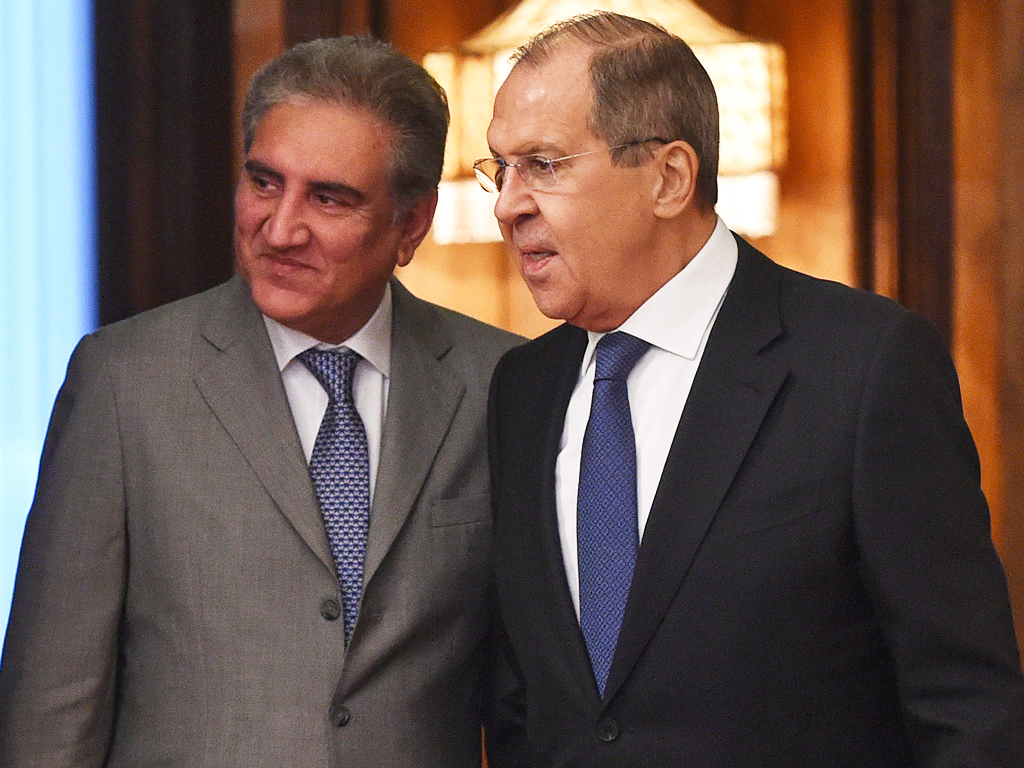
H.E. Ambassador Danila Ganich: Yeah, I absolutely agree with you, Your Excellency. You are an expert and you are well known in the diplomatic circles and in Moscow and we have tremendous respect for you, Sir
What you are saying is absolutely right, to which I can subscribe one hundred percent. You yourself mentioned that this is a thing for the future, so right now in my view, we should concentrate on things which we can fulfill. So basically, yes, we have a strategic goal for these pipelines and we have a strategic goal for these connectivity projects being implemented, absolutely true. But at the same time, let’s take a look for example at Europe. We are trying to build this Nord Stream 2 in Europe, with strong German support, we still are encountering problems which many people think we cannot solve. These are American sanctions. So we have this American factor which we should take into consideration and at the highest level there was a recognition from the Pakistan part that you cannot ignore American sanctions. So what I’m saying is that I’m not sure to say that outright, directly, that we are allowed or that we will be allowed to do that. You see what’s going on with this Iran-Pakistan pipeline? Nothing is going on because Washington threatens and we have to take this into consideration, we are frightened of it.
So, my point is, I have been racking my brains over what is the best solution for our national international problems and the best solution is internal development. We should become independent, so that we could ignore some outside factors. As for infrastructure projects, energy projects, I think we are hundred percent on your side, sir. Absolutely supportive, but there are our intentions and there is reality and the reality is that I’m not sure that we will be allowed to cooperate fully by Washington.
Ambassador Mustafa Kamal Kazi: Russia has a very rich private sector and also most of the industries now are in the hands of private sector. As our trade figures will reveal that the bulk of our imports from Russia are fertilizers, and Pakistan has a good scope for Russian fertilizer entities in the private sector to invest and that is something that happened when I was there. There was even an MoU signed by a Russian private entity to construct a very huge fertilizer factory here, on Qadirpur gas reserves, but somehow there was a Pakistani competitor and they succeeded in the bidding process. So I mean, you know, it’s not only in the government sector that we have to look for growth in the economic sector, but also to the private sector and Russia has a tremendously rich private sector that is investing considerably all over the world.
 H.E. Ambassador Danila Ganich: I agree with you Sir, and there we have certain channels of communication. We have our Intergovernmental Commission for Economic and Technical Cooperation. So I’m sure that they will identify feasible projects including what you mentioned.
H.E. Ambassador Danila Ganich: I agree with you Sir, and there we have certain channels of communication. We have our Intergovernmental Commission for Economic and Technical Cooperation. So I’m sure that they will identify feasible projects including what you mentioned.
Ambassador Mustafa Kamal Kazi: Thank you. Can we have another question from the audience?
Cdr (R) Sadeed A Malik: There’s a question from Khalil Farooqi. He’s our member Board of Governors and he has asked what are Excellency’s thoughts on QUAD, the new alliance between US, Australia, Japan and India?
H.E. Ambassador Danila Ganich: I think that this is another manifestation of very aggressive policies conducted by the West in our region. And basically this is the project aimed at containing China and I think that this approach is radically different from the Pakistani position, which is in favor of cooperation. Right now in a couple of days we’ll have the Aman-21 International Naval exercises organized by Islamabad. Basically, this is the spirit which we want to have. In these exercises all players will participate, NATO, Russia, China, everyone. So this is the spirit of cooperation and as for this Quadrilateral Initiative, I think that this is not a good idea. This is some kind of confrontational outreach.
Cdr (R) Sadeed A Malik: There are many Pakistani students who want to study in Russia and what is Russia doing for students who want to study in Russia? And businessman who would like to invest in Russia?
H.E. Ambassador Danila Ganich: As for Pakistani students, I would like to say that the government is intending to gradually increase the number of scholarships provided to Pakistanis, though it will not definitely be like in the times of the USSR. So right now I suppose we have around 20 scholarships, but that is better than nothing. This is State scholarships, as for commercial education, anyway, it’s cheaper than in the west and I suppose that these are you know thousands we’re talking about. Some people pay for their education and they come to Russia.
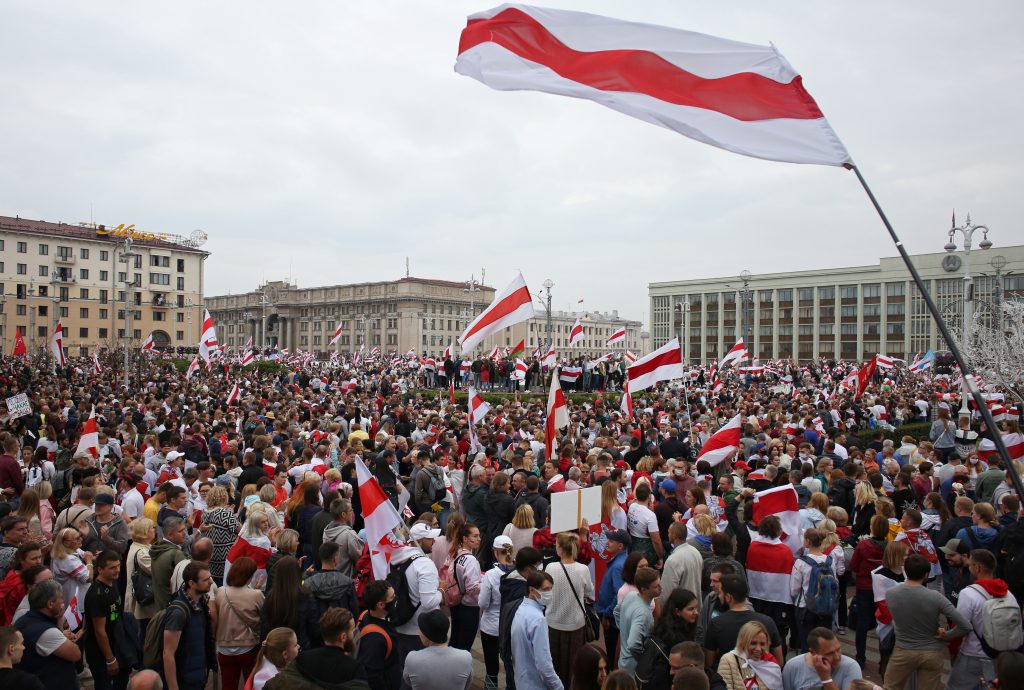
As for the businessmen, I’ve had some personal experience of interacting with local businessmen and majority of them want us to do everything for them. So basically, we would like to see active people. For example, there are some annual business forms in Russia such as IN Yekaterinburg. Why don’t those businessmen buy tickets, get themselves registered, go to Russia and conduct negotiations. Why do they want us to do everything for them? This is not the way we’re working, I think that people should be active themselves and everything will bear fruit.
Cdr (R) Sadeed A Malik: There’s yet another question and that is about the situation in South China Sea. What are your views about it sir?
H.E. Ambassador Danila Ganich: I will be honest with you. We are preoccupied with our own problems and we try, you know to stay, I wouldn’t say neutral but we are not very active about this.We understand that China can protect its interests and we are for constitutional means of resolving all differences. So basically the difference between Russia, Pakistan and the USapproach is that we follow international law and they are champions of the so-called rules-based order, rules which they will invent. So, answering directly to your question, I would say that we are not very active about this but we definitely follow the developments. We are sure that China is able to protect itself, and we appeal to all sides and to all parties to stay within international law.
Cdr (R) Sadeed A Malik: There are no further questions and you may like to request the chairman for his concluding remarks, Sir.
Ambassador Mustafa Kamal Kazi: Well before we do that, I have a question or rather a point. The Ambassador mentioned cooperation on Afghanistan and there’s a dialogue that is taking place between our two countries, and Russia has sponsored many rounds of talks also with Russia being in contact with all parties concerned in Afghanistan. And also, I believe US and Russia are also in consultations on what’s happening on the ground. How do you see the eventual drop scene in Afghanistan? Because on one hand the Trump administration had shown its determination to withdraw its military forces and on the other, now, we have a new administration in Washington, which probably has a little slippery position on this. But in any case eventually the forces will have to be withdrawn and some kind of a negotiated solution will have to be found. But in the post US-withdrawal situation, it will be for the countries of the region to play a role in maintaining peace and balance in Afghanistan, so how do you see Russian role in the Afghanistan situation?
H.E. Ambassador Danila Ganich: First of all, I would like to say that we are not going to poke our nose into the Afghan affairs and I think that the invasion of Afghanistan which took place in 1979 was our mistake, so we would not like that mistake to repeat. This is one thing. The second thing is that our positions with Pakistan are identical. We want a stable Afghanistan and basically when they are saying that we are supporting Taliban coming to power, that’s not exactly correct. So we think that we should have a stable political system in Afghanistan and Taliban is a majority of the Afghan people so basically they represent the majority. So it’s very strange that those views of those people are not reflected in the political system. So basically I think that it in the long run, everything will be fine. There will be a coalition government representing all strata of the Afghan society but along the way there may be a lot of obstacles.
So in the long run everything will be fine. But as for the obstacles, we may notice that there is a preparation going on in the world mainstream media for a reversal of the previous decisions, and this is worrisome. We don’t know what kind of so-called review they may conduct in Washington and for how long this instability and inconsistency in actions will continue, but I would like to repeat one important thing. In my view the Afghan track is the only track where we can cooperate very closely right now.
Cdr (R) Sadeed A Malik: There appears to be some more time and we could perhaps accommodate one or two more questions. There’s a question from Mr. Faruq Afzal, one of our Board of Governors member and former Chairman of Pakistan-Russia Business Council at the Federation of Pakistan Chamber of Commerce and Industries. He asks when we should expect a Preferential Trade Agreement to be signed between the two countries? Secondly, we still see that there is lack of interest and trust of business community in doing businesses by Russian businessman in Pakistan, how can this be removed?
H.E. Ambassador Danila Ganich: First of all before we conclude I would like to say that it is a great honor to participate in this webinar and I thank you very much for inviting me.
Answering your question, I think that not only Russian businessmen are passive but Pakistani businessmen are also passive and this can be explained by different reasons. One reason is that we don’t know the Pakistani market and you don’t know the Russian market. There is also a factor of the language. It’s very difficult to do business in Russia if you don’t know Russian. It just so happened that Pakistan is part of the English-speaking world and you have millions of people with dual nationalities, and they are bilingual. So English for a lot of Pakistanis is a native language. Another thing of different understanding is what the profit should be. In Pakistan, if you make five percent profit, seven percent profit, it’s good. In Russia we have much more appetite so if it’s not 100% profit, it’s not worth doing business.
These are some factors but what I would like to say that you cannot change the situation overnight, we used to be in different geopolitical political camps. We belong to different languages, so it will happen but not all of a sudden, but what I will try to encourage as part of my job here, for people to be active. They should not wait for somebody to do something. They should work on their future and their profit themselves.
Cdr (R) Sadeed A Malik: Thank you, sir. There are no more questions.
Ambassador Mustafa Kamal Kazi: Thank you very much Ambassador. You have been great in honoring us on this special day Russian Diplomat’s Day tomorrow. You have also enlightened us on several questions and answered very frankly. We really look forward to a great future in relations between Russia and Pakistan, and I think SCO is a great vehicle also to facilitate and create an environment for greater economic cooperation. With this, I pass on to Chairman of KCFR to say a few words. Thank you.
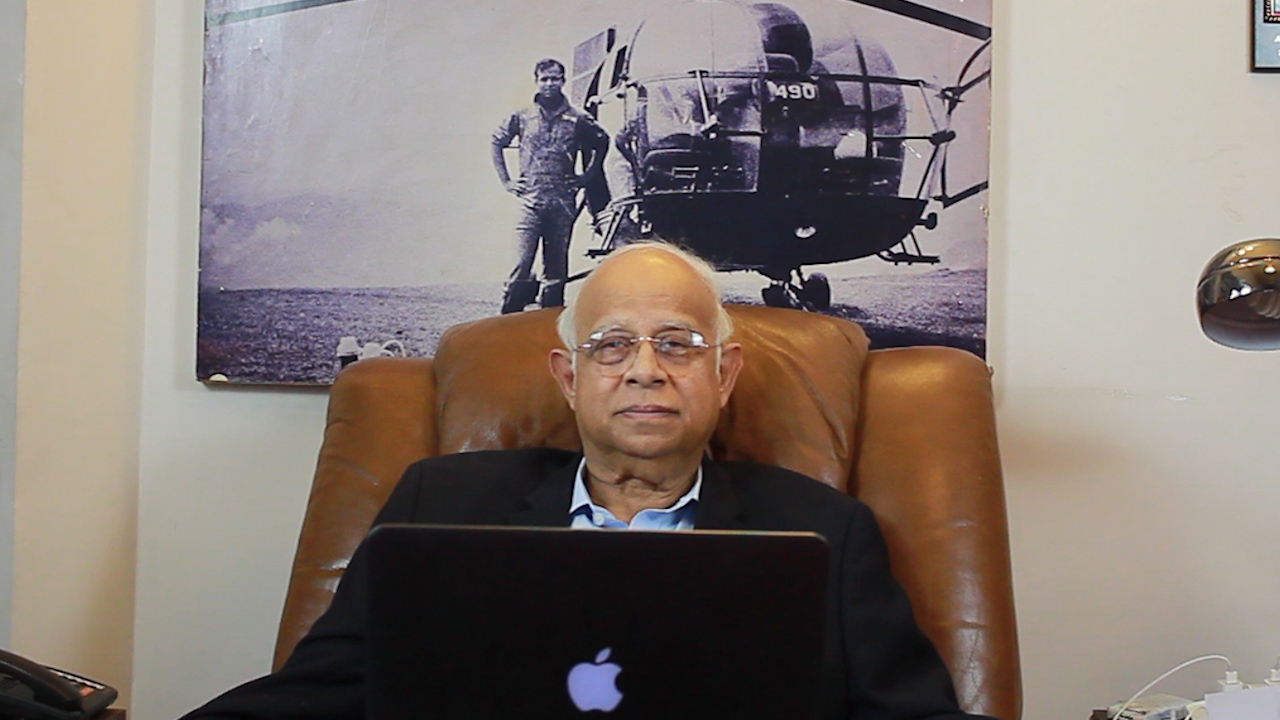
Chairman KCFR
KCFR Chairman Mr. Ikram Sehgal: Excellency, my name is Ikram Sehgal, I am the Chairman of the Karachi Council on Foreign Relations. I would like to start on a personal note that 51 years ago I was one of the first people to handle Russian military equipment in the form of flying the Mi-8s. I was flying the Mi-8s as a co-pilot for some time, but more or less when the Soviets sent aid on November 13th, 1970 when there was a tremendous cyclone in the then-East Pakistan. The Soviets sent four Mi-8 helicopters which is the forerunner to Mi-17. And at that point of time, they did tremendous work in the Bay of Bengal flying out of Dhaka. I was flying the Eastern Command but on off days I used to accompany them and I had a tremendous viewpoint of the remarkable work they did. So I want to start off with that personal note.
Two of my commanding officers, both unfortunately dead now, one, General Naseerullah Khan Babar and the other Maj. Gen. Ijazullah Khan Niazi who were with us in 1970 and we were flying at that point of time on the Karakoram Highway Project. I accompanied them from Khunjerab down to the Wakhan Corridor, so that was our first real contact with Russia, even though our pilots had flown to Kremenchug for training earlier on the Mi-8s. Then MajorGen. Niazi and Gen. Babar went by road in 1991 or 1992from Chaman to Kandahar to Herat to Turkandi, Sehrabad. Then they crossed over from there to Turkmenistan and Uzbekistan then to the Wakhan Corridor all by road and they came back via the Wakhan Corridor via China and the Khunjerab Pass. Now the point I want to make is that was 30 years ago, today the Economic Cooperation Organization which used to exist started off as sort of a latter thing to the Regional Cooperation for Development. It had road and rail communication and the CPEC, the China-Pakistan Economic Corridor is essentially a North-East South-West Corridor, but the real Corridor is from Russia and Central Asia down to the Arabian Gulf. That is the real corridor which connects us to what we call Eurasia, and that is what we want to be. We are a part of South Asia, we are part of Central Asia and we are a part of the Middle East but most of all we are a geographical pivot, and I really carry what you say, we made a major mistake in not taking up the Soviet invitation in the 1950s to our Prime Minister, we should have remained neutral. However, there were circumstances at that time over Kashmir etc. we had a lot of other contingency problems, and we can correct that now. I really take the bottom-line of what you’re saying, that we can be neutral, we can engage with all parties and really take advantage of our geopolitical position.
I am very grateful to your Excellency. You have taken a lot of time and I’m very grateful to you for having taken that time and I hope that you will remain engaged with the Karachi Council on Foreign Relations. You actually have come on a day which is a great day for us. Yesterday, we signed a Memorandum of Understanding along with our previous chairman from the Jinnah Society, for taking over the Flagstaff House which actually is the property of the founder of the nation, Quaid-e-Azam. And in fact, we are building The Quaid’s Center which will be a world-class Center, and today is the first day that we have got it.
Thank you Excellency for being with us on this very important day for us.
Cdr (R) Sadeed A Malik: Thank you very much, sir. Mr. Chairman. May I have your permission to conclude the webinar?
KCFR Chairman Mr. Ikram Sehgal: Please go ahead.
Cdr (R) Sadeed A Malik: Thank you very much your Excellency, and thank you very much for moderating, Ambassador Mustafa Kamal Kazi, and all participants. Thanks to you all. We conclude the webinar. Thank you for your participation.




